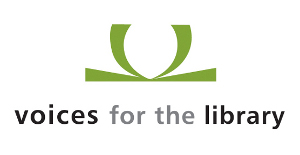New collections on the Hub
A special mention for the University of Worcester Research Collections – they have now been added to the Hub as collection level descriptions, thanks largely to their HLF ‘Skills for the Future’ trainee, Sarah.
We are delighted to have the Royal College of Psychiatrists as a new contributor, adding to a number of distinguished Royal Colleges already on the Hub.
Feature for March
This month we step into the world of augmented reality with a feature about the SCARLET project:
The feature tells us that “The SCARLET ‘app’ now enables students to study early editions of Dante’s Divine Comedy, for example, while simultaneous viewing catalogue data, digital images, webpages and online learning resources on their tablet devices and phones.” It all sounds very exciting, and something that archives can really play a very active part in.
EAD Editor
We’ve been busy testing the new instance of the EAD Editor, which will be released soon. We’ll be able to tell you more about that shortly.
We now have a page giving you information about the ‘right click’ menu that helps you with things like paragraphs, lists and links:
SRU and OAI-PMH
APIs are becoming increasingly important with the open data agenda. We have provided APIs for some years now. Recently we have updated the information on these to help developers who would like to use them to access Hub descriptions: http://archiveshub.ac.uk/sru/ and http://archiveshub.ac.uk/oaipmh/
The SRU interface is used to provide data to Genesis, the portal for Women’s Studies: http://www.londonmet.ac.uk/genesis/. It means that the data is only held in one place, but a different interface provides access to select descriptions – in this case, descriptions relating to women.
APIs may not mean a great deal to you, as they are primarily something developers use to create new interfaces, mash-ups and cross-data explorations, but do pass this on if you know of developers interested in working with our data. We want to ensure that archives are at the heart of innovations in opening up and exploring data connections.
Page about identifiers
Some of you may have read my recent blog post about issues with identifiers for archives and for archive descriptions. We now have a page on the Hub to help explain what a persistent unique identifier is and how you create it:
http://archiveshub.ac.uk/identifiers/
As ever, please ask us if you have any questions about this.
Former Reference
The Archives Hub now displays former reference with the label of ‘alternative ref’. This is because for some contributors the former reference is, in fact, the main reference, so we felt this was the best compromise. For example: http://archiveshub.ac.uk/data/gb1069-12 (see lower level entries).
The new EAD Editor will allow for descriptions with a former reference to be uploaded, edited and removed, but it will not provide the facility to create them from scratch.
Case Studies Wanted!
Finally, we have a case studies section – http://archiveshub.ac.uk/casestudies/. We’d love to hear from any researchers willing to provide us with a case study. It is a really useful way for us to convey the importance of the Hub to our funders.

